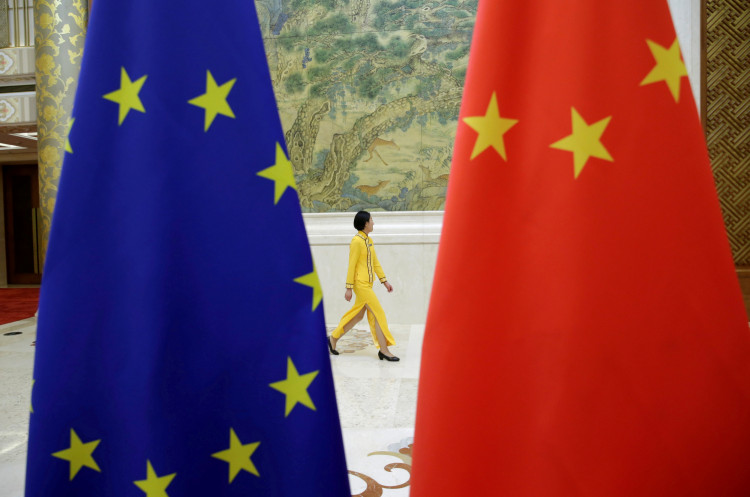China's Ministry of Commerce has accused the European Commission of demanding an "unprecedented" amount of information on Chinese automakers' supply chains during its investigation into the country's subsidized electric vehicle (EV) imports. This development comes as the European Union (EU) prepares to impose hefty tariffs on Chinese EVs, a move that has sparked accusations and retaliatory threats from Beijing.
"The type, scope, and quantity of information collected by the European side was unprecedented and far more than what is required for a countervailing duties investigation," stated He Yadong, a spokesperson for China's commerce ministry, during a recent press conference. This response came after Chinese state media suggested that the EU's investigation was a guise for espionage.
The European Commission's probe, which led to the decision to impose extra duties on imported Chinese EVs, has been met with significant backlash from China. Beijing has criticized the Commission's requirements for detailed information regarding the sourcing of raw materials, manufacturing components, pricing strategies, and sales channels of Chinese EV firms. These demands were deemed excessive and indicative of an attempt to undermine China's burgeoning EV industry.
European automakers are currently feeling the pressure from the influx of cheaper Chinese EVs, with the European Commission noting that prices for these imports are typically 20% below those of EU-made models. To counter what it perceives as unfair competition due to Chinese state support, the Commission has imposed tariffs as high as 48% on Chinese EVs, a measure set to take effect in early July.
China has vowed to "resolutely" retaliate against the EU's decision. Speculation is rife regarding the nature and extent of Beijing's potential countermeasures. Shi Yinhong, a professor of international relations at Renmin University in Beijing, suggested that China must balance its response to avoid severely damaging its relationship with the EU. "China is still trying to attract EU investment. Compared to the U.S. and its core allies, the EU is not China's main rival, so China needs to strike a balance between the retaliation and all these factors," he explained.
In the meantime, China has initiated an anti-dumping investigation into EU pork imports, following similar probes into European brandy and potentially high-emission gasoline vehicles. This strategy appears to be a measured approach, targeting specific sectors without provoking a full-blown trade war. State broadcaster CCTV hinted that the results of the anti-dumping investigation into EU brandy, which predominantly affects French exports, will soon be announced, signaling a possible retaliatory tariff.
Amid these rising tensions, a closed-door meeting between Chinese and European carmakers was held, with the former calling for "firm countermeasures," according to state media reports. This growing strain is echoed by the findings of a survey conducted by the China Economic Service and the China Chamber of Commerce to the EU, which revealed that 82% of Chinese vehicle and industry chain firms are now less confident about investing in Europe due to the impending tariffs. Additionally, 83% reported that their European partners are worried about continued cooperation with Chinese companies.
Despite the tough rhetoric, some analysts believe that a compromise may be reached before the tariffs come into full effect. European Commission trade spokesperson Olof Gill mentioned the possibility of finding a mutually agreeable solution, provided China withdraws its subsidies. However, given the firm stance on both sides, a resolution before the July 4 deadline seems unlikely.
The European Commission's actions are driven by concerns over market distortion caused by Chinese state support for its EV sector. Fabian Zuleeg, chief executive and chief economist at the European Policy Centre in Brussels, emphasized that the EU must respond to China's market practices. "We should not forget that the underlying issue is that China has been found to distort the market for EVs, and that will require a response," he said.
In parallel, the U.S. has increased its tariffs on Chinese EVs to 100%, though it imports virtually none of these vehicles, urging its allies to follow suit. This places additional pressure on China as it navigates its trade relationships with both the EU and the U.S.
Ultimately, the escalating trade tensions between China and the EU reflect broader geopolitical shifts and economic strategies. The EU's protective measures aim to shield its domestic industries, while China seeks to maintain its competitive edge in the global EV market. The coming weeks will be crucial in determining whether these tensions will ease or escalate further, with significant implications for international trade and economic stability.






